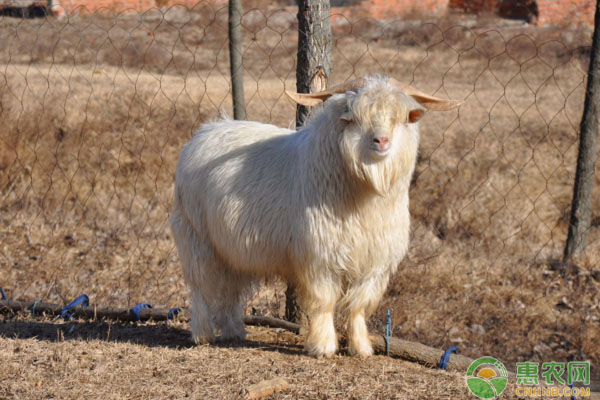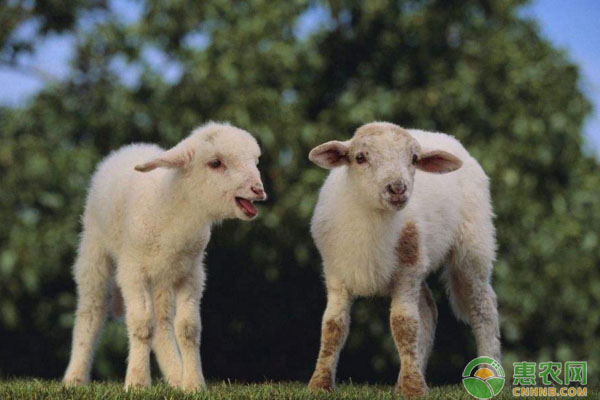Cashmere goats are one of the common breeds of goats. At the same time, cashmere goats are also the best goat breeds in the world with the highest quality of cashmere, so there are many people who breed cashmere goats. However, in the actual aquaculture process, due to improper feeding management, a number of problems have arisen in cashmere goats. Therefore, today Xiaobian talks about the management techniques of cashmere goats, rams, ewes, lambs and breeding sheep. First, the kind of ram 1. Sheep house site selection The sheep house is located in the north facing south. The site should be selected from the leeward sun, away from the residential area, and convenient for water and electricity transportation. Generally, each ram is 3m2. 2, feeding management The ram is aggressive, so keep it alone and keep 2 hours of exercise every day. Feeding feed should be comprehensive in nutrition and have enough protein and vitamins. For daily feeding, green feed can be used. 1.5 months before breeding, the feed is gradually changed to breeding feed. When breeding rams or when the frequency of collection is relatively high, they should be supplemented with raw eggs and milk. Second, the ewe 1, empty ewes During this period, it is mainly to restore its physique, waiting for breeding, adding high-quality hay and concentrate to the feed that is fed daily, and keeping the ewes in the air. 2, pregnant ewes It is not advisable to have strenuous exercise in the early pregnancy, feeding high-quality hay and silage, and at the same time, properly feeding the concentrate, and keeping the lyrics when breeding. In the second two months of pregnancy, the fetus grows fast, so it is necessary to strengthen daily feed management, increase 30-40% of the concentrate, and prohibit feeding the moldy feed. 3. Breastfeeding Ewe The lactating ewes mainly increase the milk yield of the ewes. The feed is mainly composed of high quality hay and grass, while feeding the concentrate and succulent feed in moderation. In the late lactation period, the lambs can reduce the amount of succulent feed and concentrate feed after eating. Third, the lamb 1. Disinfect the sheep house and utensils before the lamb is laid, and do a good job of preventing cold and keeping warm. 2. After the lamb is born, if the mother's breast milk is insufficient, the farmer is required to carry out artificial feeding. 3. Lambs of 1-2 months old are fed with 150g of concentrate per day; lambs of 3-4 months old are fed with 200g of concentrate per day; before the weaning of 4 months old lambs, they are kept in groups according to their gender and physical strength. Fourth, breeding sheep 1. Breeding sheep, male and female sheep, are separately cultured. 2. The growing sheep grows faster in the 5-8 months, and the feed is mainly composed of refined concentrates, and the high-quality green hay, silage and juicy feed are supplemented. 3. The growth of the bred sheep gradually slows down from 9 to 18 months, and the rumen digestive function of the rumen is gradually improved. A large amount of forage and other coarse materials are eaten, and a small amount of prepared concentrate can be appropriately fed. For more exciting pictures and popular comments on the management of cashmere goats, click below to view the original ↓ ↓ ↓ 1 - 3 indicates a very acidic substance Pdg Test,Ovulation Testing,Ovulation Test Kit,Ovulation Rapid Test Kit Changchun LYZ Technology Co., Ltd , https://www.lyzstrips.com


4 - 6 indicates an acidic substance
7 indicates neutral
8 - 11 indicates alkalinity
12 - 14 indicates a very high level of alkalinity
Paper Size:app 45mm x 7mm (L x W)
Weigh:app 3g
a. Drink a fresh green juice every single day.
b. Drink the juice of half lemon squeezed in a glass of warm water first thing in the morning (citrus fruits seem acidic but are actually very alkaline!)
c. Eat a diet full of nutritious and alkaline vegetables and fruits.
d. Stay away from all processed foods and fried foods which are extremely acidic.Avoid refined sugar like the plague, fresh fruits are okay.
e. Drink quality water such as purified water or even better, fresh spring water (tap water usually has fluoride in it and is very toxic to the body, which your dentist may not tell you.)
f. Use natural household cleaning agents such as diluted apple cider vinegar.Eat more plant-based foods and opt for only grass-fed, organic animal products.